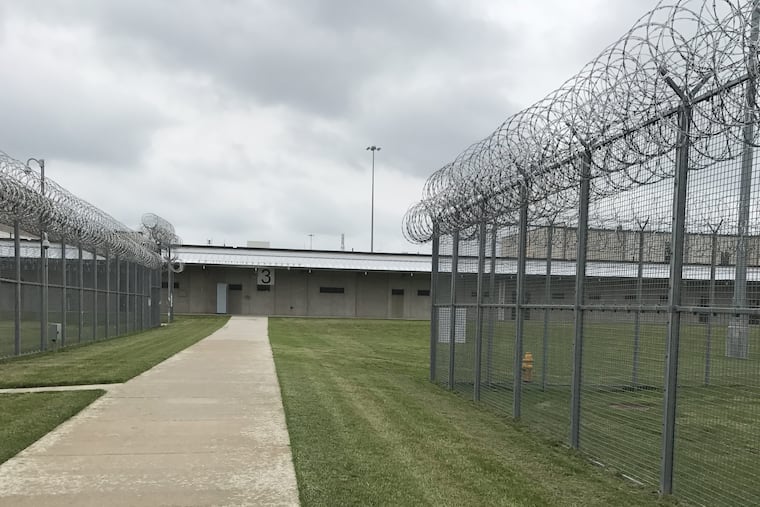Releasing only inmates who’ve already been diagnosed with coronavirus would be a grave mistake | Opinion
Prisons are fiendishly effective for spreading contagion.

I’m a lawyer, and my client, James Davis, is in a New Jersey federal prison. He was convicted of fraud and related federal crimes for giving campaign contributions and other benefits to the former Philadelphia sheriff in exchange for contracts for his advertising business. His crime was nonviolent, and this was the first conviction of his life.
Davis is 69 years old, and, like many older Americans, he struggles with medical problems. He has a bad knee that he wasn’t able to get replaced before he was locked up, and he suffers from cystitis that blocks his bladder. He also suffers from three other conditions — asthma, high blood pressure, and heart disease — that, until recently, seemed less scary.
The coronavirus pandemic has only just begun to scythe through America’s jails and prisons. More than 4,800 people now in federal prison are over age 65. If the courts don’t act now, a lot of Americans like my client are going to die.
Prisons are fiendishly effective for spreading contagion. This morning, Davis woke up on a bunk bed he shares with a cellmate, then used the single bathroom he shares with over a hundred inmates. Until a few days ago, inmates ate meals in a room with those same hundred people, packed shoulder to shoulder. Twice every day, the prison does a procedure called count, where Davis and all the inmates lined the sides of a corridor while two guards walked past, close enough to touch. Only a few days ago did the prison start providing soap in the bathrooms. Guards and inmates still aren’t wearing protective masks. When the coronavirus hits the prison, it will spread like the shockwave from a detonating bomb.
Judges have the power to save the lives of inmates and guards now; they must start using it.
Last month, I filed an emergency motion asking the U.S. Court of Appeals for the Third Circuit in Philadelphia to release Davis on bail. Release on bail wouldn’t wipe out his prison sentence, or even shorten it. All we asked was to pause his prison time until the court had ruled on his appeal from his conviction.
A federal statute requires judges to grant release pending appeal when they find that the appeal is substantial and the inmate is unlikely to flee or pose a danger to others.
Davis had an unusually strong case for release pending appeal. His old age and heart and lung diseases put him at clear risk of dying if infected. And besides his nonviolent crime and his spotless prior history, he even had a proven track record of good behavior on release. For over three years before his trial, he’d been released on bail, without a single issue. I figured if Davis couldn’t win release pending appeal during a global pandemic, no one could.
» READ MORE: What it’s like to be locked in prison during the coronavirus pandemic
The court denied him release. Its order read, “Appellant’s Emergency Motion for Bail Pending Appeal Due to Coronavirus Risk is denied. Appellant may renew the Emergency Motion if he is diagnosed with COVID-19.”
Releasing only inmates who’ve already been diagnosed with the coronavirus would be a grave mistake. Coronavirus tests remain difficult to get, especially for inmates. In practice, requiring a diagnosis may be requiring the impossible.
Worse, releasing inmates only after they have the coronavirus makes no sense. The urgent reason to release inmates who face the greatest risk from infection is to get them out of these contagion factories before they’re infected. Otherwise, they’re more likely to get infected, more likely to infect others, more likely to need scarce medical resources, and more likely to die.
On Tuesday, a federal judge in Philadelphia ordered another inmate released early due to his coronavirus risk. “We are in the midst of an unprecedented pandemic,” the judge wrote. The next day, we renewed our motion.
The coronavirus is a tsunami barreling toward the shore. We can still save people. We need the courts to do their part.
Matthew Stiegler is a federal appeals lawyer in Philadelphia.